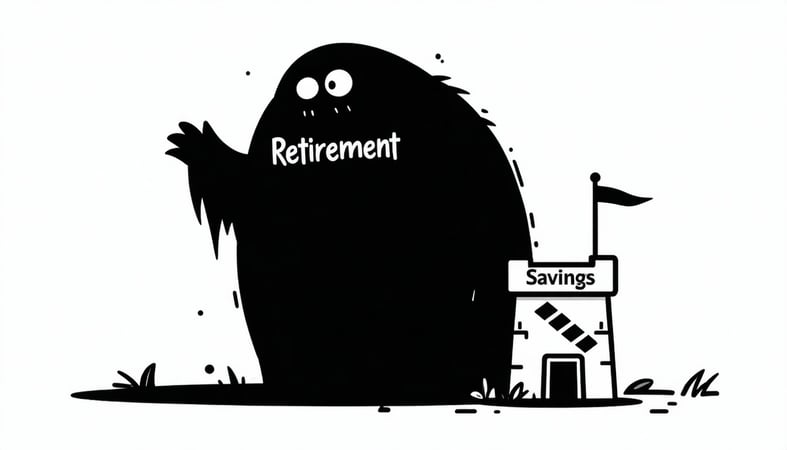


Dear Friend in Finance,
I keep hearing people talk about “saving for retirement,” but honestly, I have no idea how much I’m supposed to be saving or what I’m even saving into. Is there a right way to do this, or is everyone just guessing?
Sincerely,
Retirement Rookie
Dear Retirement Rookie,
You are not alone—most people were never really taught how retirement saving works. So thank you for asking this out loud.
At its core, saving for retirement means setting aside money today so that future you can stop working and still afford to live well. The big goal? To reach a point where you’re working because you want to—not because you have to.
Most people use a combination of accounts:
Employer Plans (like a 401(k) or 403(b)): These allow you to contribute pre-tax money from your paycheck. If your employer offers a match, that’s free money—don’t leave it on the table.
Roth and Traditional IRAs: Individual retirement accounts you open yourself. Roth IRAs grow tax-free; Traditional IRAs may give you an upfront tax break.
Taxable Brokerage Accounts: These don’t have tax advantages, but they offer flexibility and can complement your retirement accounts—especially if you want to retire early or have multiple goals.
The right savings rate depends on your time horizon and how aggressively you want to pursue financial freedom. A general rule of thumb is:
10-50% of your income goes towards savings. The specific amount would depend on your cash flow and time horizon.
Even small contributions early on can grow dramatically over time—thanks to compounding.
Once you retire, you’re no longer earning a paycheck. You need assets to live off of—whether that’s savings, investments, or rental income. The earlier you start planning, the more flexibility you have. Unfortunately, many people ignore retirement until it feels urgent and overwhelming. But starting now, even if it’s just $50 a month, makes it easier and less painful than playing catch-up later.
You don’t have to get it perfect from day one. But the earlier you begin, the more likely you are to build a future where you feel secure, independent, and in control.
Sincerely,
Your Friend in Finance